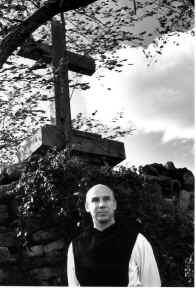
My friend, Jay Gary is hosting Foresight 2006: Leading from the Future in Virginia Beach, September 20-22. Foresight 2006 is the fourth annual foresight conference for Christian leaders, and this year's theme of leading from the future, not just the past, is focused on the genetics age and the challenges facing organizations, churches, ministries and schools.
Jay described the conference as follows:
Imagine spending three days conversing over lunch and in small groups with leading strategists from faith-based, academic and business contexts from all across the country. You'll spend time with Dr. Ted Peters, America's leading theologian on science and religion, bio-ethics and futures thinking.
In workshops such as "Developing and using scenarios in public and private sectors," you'll learn the art of strategic thinking from national consultants like Dr. Clem Bezold, chairman of the Institute for Alternative Futures and board member of the World Future Society.
You'll also hear Tom Hoffmann, pastor and missional leader, speak on driving forces shaping global Christianity. You will grapple with what it means to be part of a church that is shifting its center of gravity to the south. Also, Mary Beth McEuen, VP of People and Potential at Maritz, will speak on cultivating strategic leadership with forward views.
Foresight 2006 is for anyone interested in the future of leadership and transformational change. Whether you are a manager, consultant, ministry leader, educator, pastor, health-care worker, military leader or teacher, this conference is for you.
For more information see: http://www.regent.edu/acad/sls/conferences/foresight/
 I will be leading a church service with our second and third year Ph.D. students during their upcoming doctoral residency at Venerable Historic St. Luke's, Mother Church of Warrosquyoake County (now called the Isle of Wight), this Sunday, August 6. This church building might be the oldest standing structure of Christian faith in the United States of America and dates back to 1632. This is picture of the beautiful windows of the church. One cannot help but be deeply humbled by the deep witness of this structure of faith through the ages and hope that our commitment to authentic Christian Leadership may also stand the test of the ages.
I will be leading a church service with our second and third year Ph.D. students during their upcoming doctoral residency at Venerable Historic St. Luke's, Mother Church of Warrosquyoake County (now called the Isle of Wight), this Sunday, August 6. This church building might be the oldest standing structure of Christian faith in the United States of America and dates back to 1632. This is picture of the beautiful windows of the church. One cannot help but be deeply humbled by the deep witness of this structure of faith through the ages and hope that our commitment to authentic Christian Leadership may also stand the test of the ages.





